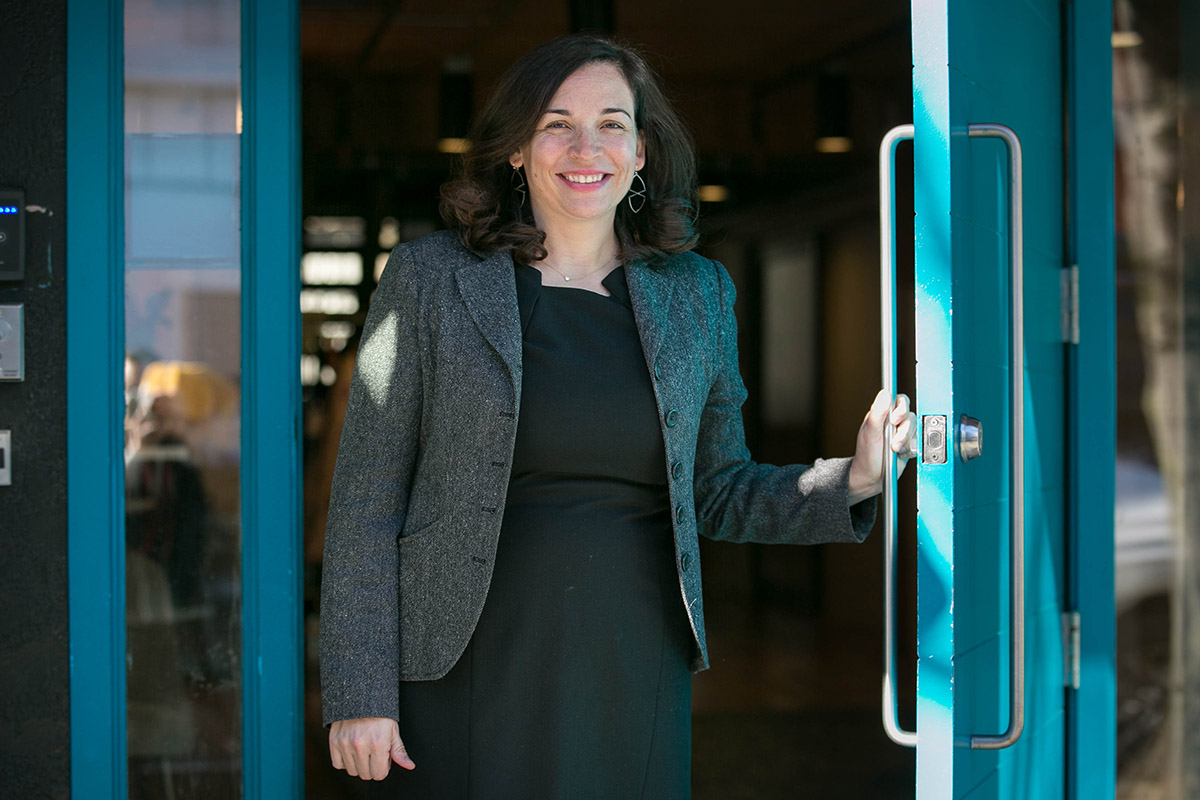Room to grow
A personal mission inspired a new brand of women-friendly co-working spaces

In January 2017, Amy Sterner Nelson 02C left her job as a corporate attorney to launch the Riveter, a "female-forward" co-working space in Seattle.
She says the idea hit her when she was looking for her own place to start a business. Response to the concept has been strong since the first space opened in May 2017. In March, Nelson's company secured $4.7 million in a financing deal that will allow the Riveter to open a third Seattle location and two new spaces in Los Angeles, with plans for expansion to Dallas and Denver. This is the first push in expanding the brand nationwide, says Nelson.
"We are working with Madrona Venture Group, which put the first money into Amazon and Redfin and Rover. It's very exciting," says Nelson, who spent ten years as a corporate attorney in New York, served on President Barack Obama's National Finance Committee, and worked as a consultant for The Carter Center. "I've always been involved in and interested in moving women ahead in leadership. As a lawyer and in politics, I saw a world where you start with an equal number of women in the workforce, but you did not end up with an equal number of women in leadership positions."
Although the concept was designed with women in mind, about 20 percent of the Riveter's clients are men. "There are a lot of men out there who are very interested in the cause of moving women ahead in leadership," Nelson says. "From a broader level, if you want to make a change for women in the workplace, you have to include men.
Women have been working in spaces designed by and for men for many years, it's not too much of a stretch to have men working in a space designed by and for women."
Even being able to attract funding for the business is part of the positive change Nelson hopes to effect. "Of all the venture capital invested, only 2 percent goes to businesses started by women and 98 percent to businesses started by men. Those are some pretty stark differences," she says. "Actually, when I came up with the idea for the Riveter, I thought I'd just build one, but a male colleague said, ‘Why would you build one when you could build one hundred? If women everywhere need this, why don't you build a hundred?' That conversation was interesting because it goes to the heart of how men and women view the world differently," Nelson says.
The mother of three daughters—Sloane, three; Reese, two; and Merritt, one—Nelson said becoming a parent sharpened her interest in opening her own business and enabling other women to do the same.
"As a mother in corporate America, I saw that the systems were not put in place to help women stay in the professional arena and move ahead in their careers," says Nelson, citing a statistic from Sheryl Sandberg's Lean In: 43 percent of highly trained professional women leave the workforce when they have children.
Nelson sought out professional development classes on how to do financial projections and pitch ideas—many of them offered in co-working spaces.
"When I walked in, it really struck me how the majority of members were men and the spaces were designed for a male-forward community," she says. "There were women in these spaces, but they were designed with ping-pong tables and foosball and kegs. It didn't feel like a place where a working mother in her mid-thirties could find the community and resources and skills she needs. I wondered where women entrepreneurs went to talk to each other."
Starting with her own circle of female colleagues, Nelson began seeking input about the ideal environment for a professional community created by women.
"One of the buckets we focused on is women who are pivoting back into work after taking time to be with their children or taking care of their parents," she says. "These are women who have had incredible careers, so why is there a lack of confidence when they go back into the arena? Some employers react as if these women never worked a day in their lives. We are finding ways to bring those women back into the workforce when and how they want."


